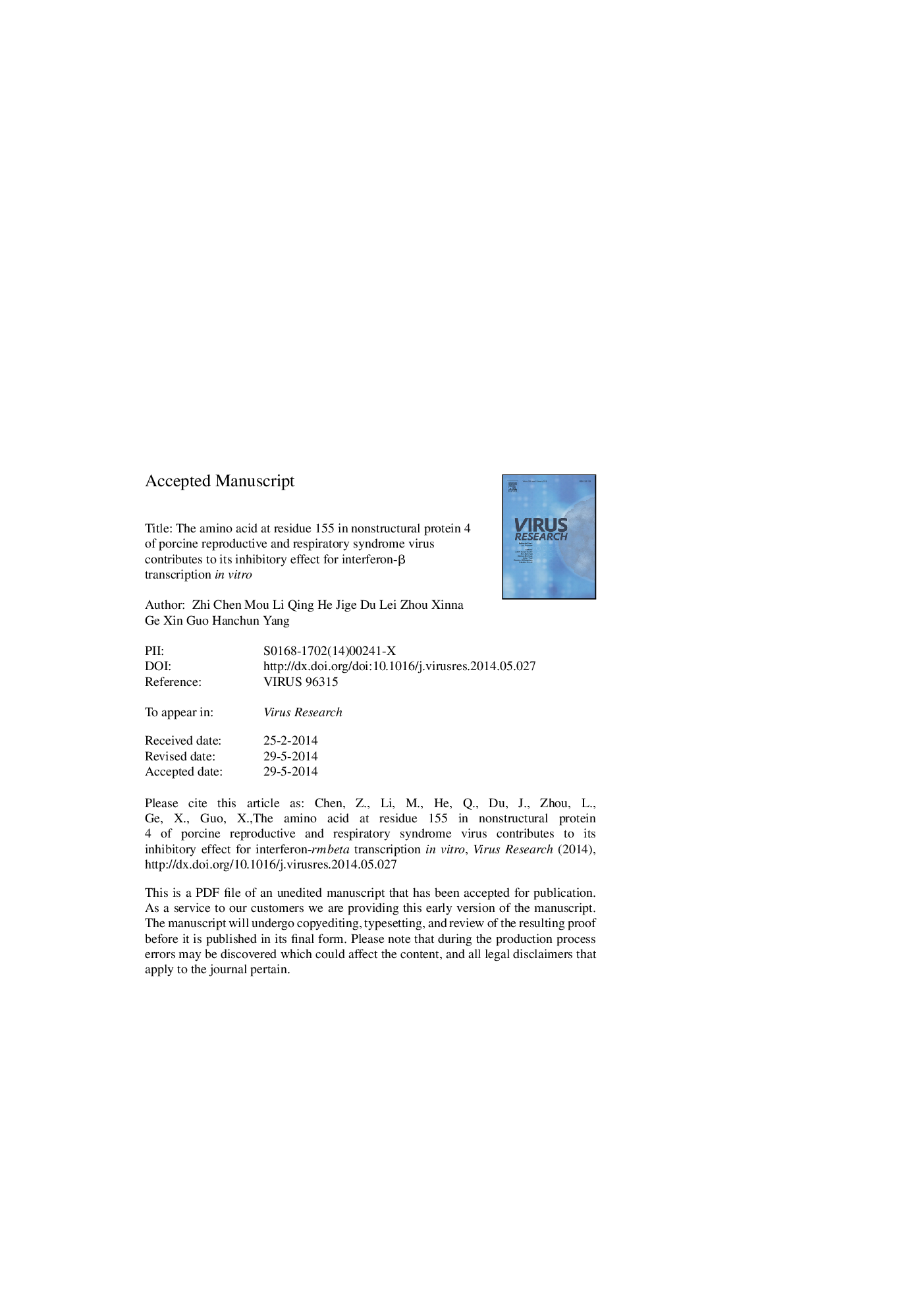| Article ID | Journal | Published Year | Pages | File Type |
|---|---|---|---|---|
| 6142512 | Virus Research | 2014 | 40 Pages |
Abstract
Type I interferons (IFNs), predominantly IFN-α and β, play important roles in both innate and adaptive immune responses against viral infections. Porcine reproductive and respiratory syndrome virus (PRRSV) has been recognized to be able to down-regulate the IFN response during in vivo and in vitro infection. In this study, we first analyzed inhibitory effect of each NSP of low pathogenic PRRSV HB-1/3.9 on IFN-β transcription in MARC-145 cells, and the results showed that the IFN-β promoter activation could be suppressed by NSP1α, NSP2, NSP1β, NSP3, NSP4, NSP5 and NSP11. We next confirmed that the inhibitory effect of NSP4 was mainly mediated through suppressing NF-κB activation, whereas not hindering NF-κB phosphorylation and nuclear translocation, and nuclear-localized NSP4 was responsible for inhibiting IFN-β activation. We further found that the NSP4 of different pathogenic PRRSV strains exhibited differential inhibitory effect on IFN-β, NF-κB, and IRF3 transcription, and the NSP4 of highly pathogenic (HP)-PRRSV could display more strong inhibitory effect. Finally, we determined that the amino acid at residue 155 in NSP4 contributed to its inhibitory effect for IFN-β transcription in vitro by altering its subcellular distribution. Our findings suggest that the nucleus-localized NSP4 of PRRSV participates in the modulation of the host type I IFNs system, and also provide novel insight for understanding the pathogenesis of the Chinese HP-PRRSV.
Keywords
Related Topics
Life Sciences
Immunology and Microbiology
Virology
Authors
Zhi Chen, Mou Li, Qing He, Jige Du, Lei Zhou, Xinna Ge, Xin Guo, Hanchun Yang,
